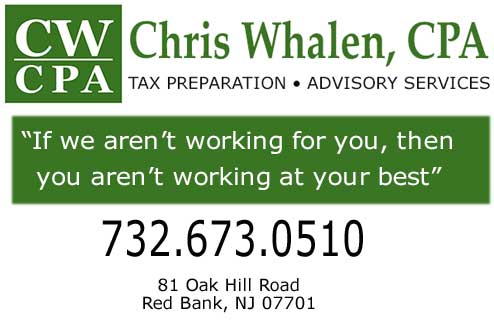Want my podcasts and blog posts delivered to your inbox? Click here to subscribe
Any Questions or Concerns right now? Stop reading and call me on (732) 673-0510.

January 24, 2024
63% Of Financial Advice On Tiktok Is Misleading, One Study Found. Users Love It Anyway
No, you can’t just invoice your own companies to increase your credit limit—unless you want to attract the attention of the IRS.

In a series of TikTok videos that went viral earlier this month, Patricia Milan, the user behind the account, Business Women University, boasted about securing $150,000 in cash to buy an Airbnb unit by maxing out her credit cards. The plan, as she explained to viewers, was to pay off her debt using the proceeds from her rental. A second video gave advice on how to obtain high credit card limits by creating a series of circular transactions within her own companies—which is, in fact, illegal in many jurisdictions.
That conceit has proven a pretty alluring promise on TikTok, where TikTok videos tagged with the hashtag #wealth have been viewed 55 million times in the last month, according to the platform. Those tagged with #millionaire have been seen 69 million times in the last 30 days, while #financialfreedom videos have been watched another 20 million times. There’s just one problem: A recent study from the stock research platform WallStreetZen found that 63% of stock-related videos on TikTok were misleading. Worse yet, 95% do not contain any disclaimers about investment risks.
“If people take this advice, you know, there’s no one they can look to to blame,” says Christine Kieffer, senior director of investor education at the Financial Industry Regulatory Authority (FINRA), an independent nonprofit representing brokerage firms and exchange markets. “The main thing is, do not go to YouTube or TikTok. Talk to a real person.”
Some of the more questionable TikTok guidance includes channeling all your household expenditure through an S-corp. to avoid taxes, taking a family vacation every year through your business, and hiring your children on salaries of $12,000 to help them be tax-free. “It feels really shitty to do it, but it’s kind of how you avoid paying taxes,” says the TikTok user Julia Hurley in one video. However, the IRS’s own website suggests that S-corps and their shareholders may be liable for some taxes, and the fraudulent use of S-corps to avoid taxes that otherwise ought to be paid have been under the IRS’s microscope for at least 10 years now. “It’s a very common money-laundering scheme,” adds Chris Whalen, a certified public accountant based in New Jersey.
Part of the problem, says Whalen, is that detailed, accurate tax advice is “much too complex for a 60-second video.” He fears for the impact of those who are offering financial tips without real expertise, who are placed alongside and presented as equivalent to real experts. “Some people are giving advice as if it’s legit, and it’s going to cause people to go to jail,” he says. And considering that, according to research, three in four Gen Zers rely on platforms like TikTok and YouTube for financial education, this could be a problem on a massive scale.
TikTok declined to comment on the record for this story, though it pointed to data showing 91.6% of videos violating its fraud and scams community guidelines were removed between July and September 2023.
One of the issues that makes advice on social media so challenging, says FINRA’s Kieffer, is that platforms are designed to elicit emotions and provoke immediate responses—neither of which are helpful reactions when it comes to financial decisions. “It’s important that individuals slow down their decision-making and realize their emotions might be taking over; or they might just be wanting to solve a problem quickly, and the internet and social media have provided some opportunity strategy for them,” she says.
Questions? Concerns? Call me on (732) 673-0510.
Get my podcasts and memos in your inbox by Clicking Here
Click here to request a consultation or ask me a question.
Please reach out to me without hesitation with any tax, business or
accounting question, and to schedule a consultation.
Tax Laws are complex.
It is very easy to make mistakes that can incur penalties.
Do you have a Tax, Accounting or Business Question?
Call Me Immediately. (732) 673-0510.
Is your CPA or Attorney
ignoring your Phone Calls and Emails?
Call Me Immediately. (732) 673-0510.
Remember,
“If We Aren’t Working For You, Then You Aren’t Working At Your Best”
Chris Whalen, CPA
(732) 673-0510
81 Oak Hill Road
Red Bank, NJ 07701
www.chriswhalencpa.com

Red Bank • Rumson • Colts Neck • Holmdel • Middletown • Lincroft • Brick • Toms River • Sea Bright • Deal • Little Silver • Long Branch • Asbury Park • Bradley Beach • Belmar • Brielle • Eatontown • Fair Haven • Farmingdale • Highlands • Atlantic Highlands • Howell • Locust • Monmouth Beach • Shrewsbury • Spring Lake • Tinton Falls • Monmouth County
#tiktok @FastCompany #FastCompany @stokel #stokel #SmallBusinessSaturday #SmallBusinesses #cpa #irs #taxes #1040 #IRS #CPA #BusinessIdeas #incometaxes #incometax #jerseyshore #taxplanning #Accounting #TaxReturns #selfemployed


